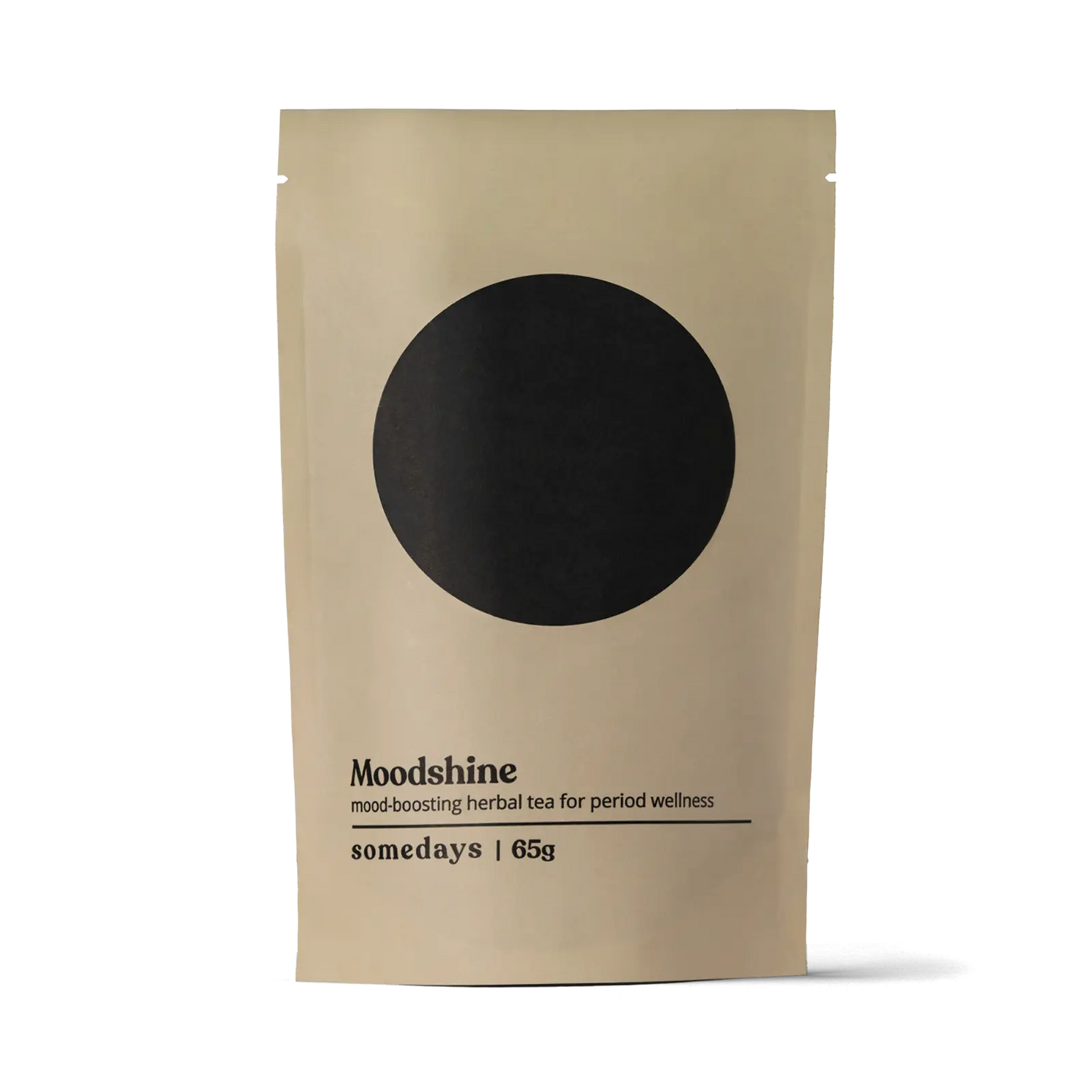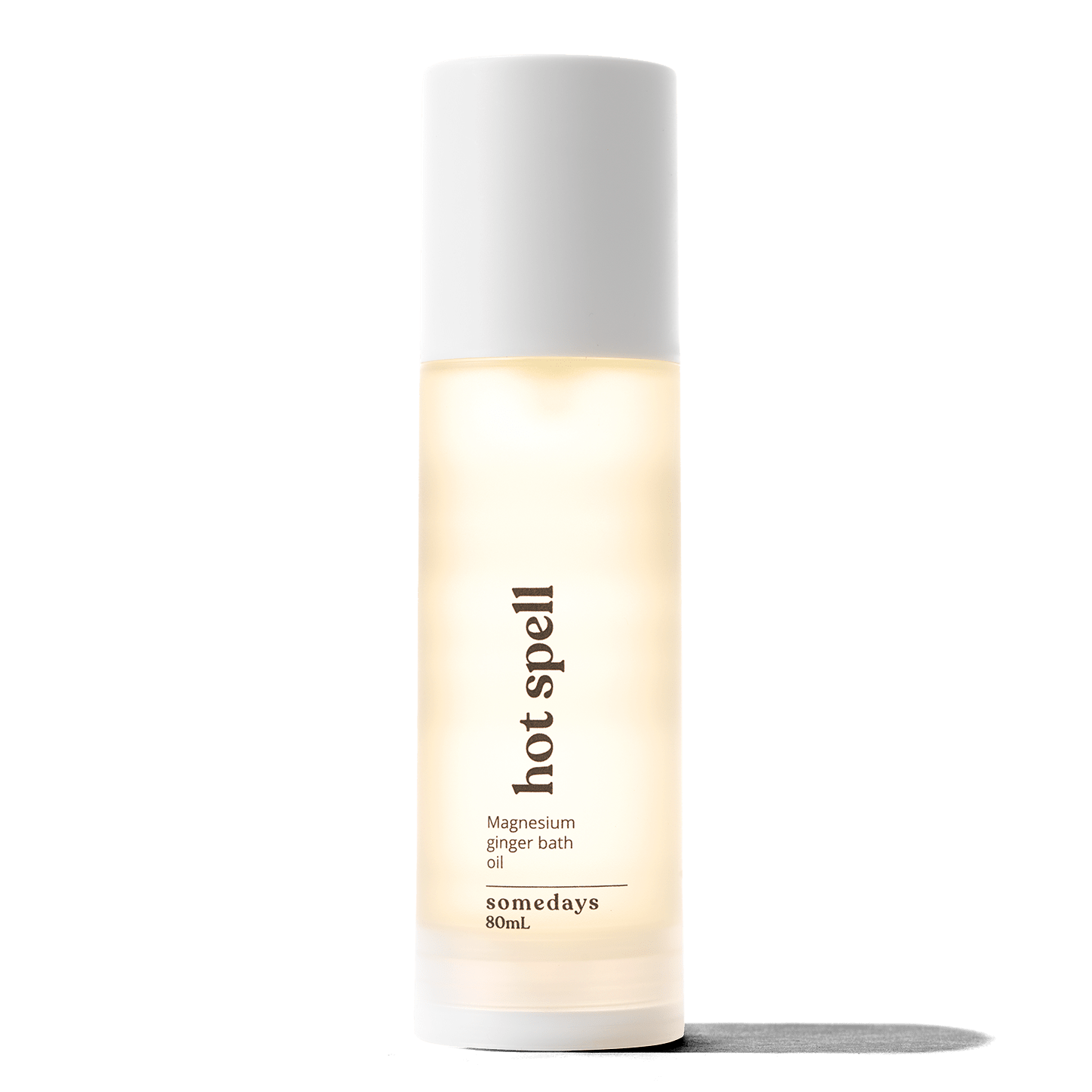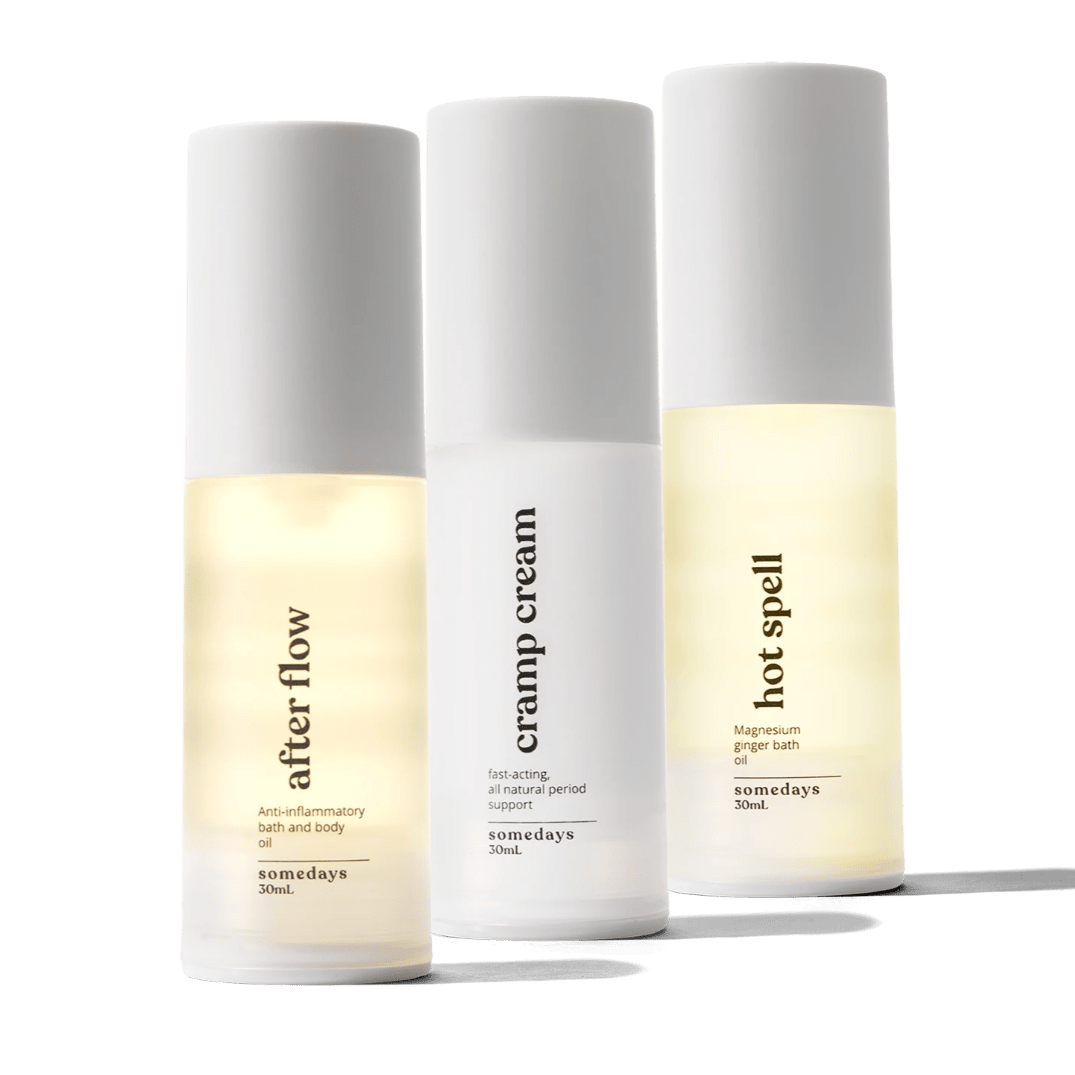A Curious Touch: Exploring Intimacy With My Menstruating Body

For most of my adult life, come my monthly menstruating, my body isn’t one I have particularly liked or felt good in. Three or four days before I bleed, everything starts to get a little puffy all over: joints ache, tummy bloats, and a dull pain rests in my abdomen.
It’s a sensation I know well, and like an annoying yet vital friend, I have come to tolerate and embrace in some ways. However, my period body, in all it’s puffy glory, has been one that I’ve always understood as ugly, and to be hidden under baggy clothes for the 5-7 days before deflation.
This perception of my menstruating body as ugly and as something to be concealed, is tightly wound up in those good old systems of oppression.
Capitalism shaming my bleeding body as unfit for work and therefore useful, and the patriarchy loudly proclaiming that my bleeding body is too messy, and alive and not objectively “sexual” enough, therefore I should conceal my bleeding and it’s bodily manifestation at all costs until I am fit to be an object of desire once again!
I have attempted to resist these oppressive ideals: having a one night stand on Day 3, and wearing a tight fitting mini-dress on day 4 despite my disdain for my swollen knees and puffy belly.
However, I realize that in most of my small “protests”, I was still doing the very thing the capitalist patriarchy wanted me to do: hide the fact that my body was bleeding and be the good “woman”; have sex, look hot, and not be too human.
Intimacy, of any kind, with my menstruating body became very loaded, and I found for a while, I shied away from it.
I have found, and still continue to find, that with my partners, I avoided intimate touch when I was bleeding, mostly due to a strange shame that I felt about my body.
I knew that the shame I felt was rooted in oppressive systems, rooted in the expectation of my body to only be a sexual object, rooted in unrealistic ideas of beauty and ‘female”, however, that didn’t change the fact that I still felt ugly, and somewhat untouchable so i would wear my baggy clothes and stayed on my side of the bed.
As much as part of me didn’t want to be near anyone on my period due to how I perceived my menstruating body, another part of me, a bodily and visceral part, craved embrace and physical touch, sensation and intimacy, whether that would be from myself, or a partner.
In unexpected moments, I would find my partner rubbing my belly and I would feel a wash of relief, that sweet oxytocin releasing and letting me feel soft. However, more often than not, I would eventually find myself pulling away, due to my anxieties and discomforts around my menstruating body and it’s appearance and appeal.
I’m coming to realize how much I connect the word of intimacy to sex, how much I equate touch to sex, and how much I equate physical support to sex. In this frustrating paradox of my “untouchable” menstruating body wanting to be touched, I realize how much I have let my body been commodified purely as function for sex and desire, and not allowed my body to be the complex and shifting vessel that it is and will continue to be.
When I started using the Somedays cramp cream, which has encouraged and allowed me to incorporate touch into my cycle, I realized how the narratives around menstruating bodies in media, science and even in holistic care focus on things you can do to your body (supplements, pills, etc.) rather than things you can do with your body.
The engagement with menstruating bodies in these spaces has always maintained a certain degree of distance which doesn’t get too close, too messy, too visual. It is from this separation and the perpetual distance that menstruators have been taught from a young age, that I feel like many of my anxieties around intimate touch and embrace on my period have stemmed from.
It wasn’t that I didn’t want to experience the healing power of touch in a time of tenderness and pain, because who wouldn’t want that. It was because I had never been told, and shown that I was allowed to want that touch.
A recent 2020 study Curious Cycles conducted by the KTH Royal Institute of Technology in Sweden, explores touching and being in touch with the menstruating body by providing menstruators with “a collection of objects and interactions which encourage people to be in close contact with their menstruating body”.
The study aimed to encourage individuals who menstruate to look at their bodies in unfamiliar and curious ways: collecting menstrual blood in a provided vessel, using a small microscope attachment for a smartphone to study menstrual blood and cervical mucus close up, observing certain anatomy such as the vulva in a handheld mirror, and exploring heat with a rice and lavender heat pad.
The study was a success, with many participants feeling empowered and excited about engaging with their menstruating body, which gave them a deeper appreciation, comfort with their bleeding bodies. However, interestingly, at the beginning of the process, many of the individuals expressed a hesitancy, much like my own.
The study deduces “The societal norms that raise people who menstruate to express discomfort with their bodies, and feel disgust when coming into contact with the messiness of the menstruating body are strong and deeply held by many”.
What the study deduced is that, due to these unhealthy societal norms, people need to be invited and given permission to look and touch their menstruating body.
The study not only provided a space for curiosity of one’s body to occur, but allowed and gave permission to menstruating individuals to be curious, to get messy and to exist in the humor and awkwardness that is a changing body.
“There is a power in touch the body for oneself,” Curious Cycles states, “both in terms of the emancipating and appreciation that can be achieved by breaking this taboo, but also in terms of the knowledge about the self which is possible to develop as a result of this touching”.
It is in writing this piece that I have found that my relationship to touch when I’m menstruating is not only informed by the sexualization and problematic gendering of my body, but the lack of encouragement of curiosity to explore my menstruating body from society and my community.
I am realizing more recently that the act of touching myself and inviting and encouraging touch from people close to me while I menstruate, is not only an act of care and healing but an act of resistance towards systems and institutions that have told me that my menstruating body isn’t worthy of that kind of intimacy.
Yes, I still feel puffy and uncomfortable a few days out of the month, and sometimes I do not want to be touched, and that’s okay because that is a boundary for myself and no one else.
But I’m simultaneously learning that my body in it’s shifting, menstruating state is allowed to crave touch, and intimacy that isn’t necessarily sexual or satisfy a standard of sexualization, gender and beauty.
I’m allowed to be intimate with my the processes of my own menstruation: rather than feeling like it’s a week to get through, I am finding the more supportive language is it’s a week to be in.
In being in it and remaining curious about my pain, discomfort and bleeding, I can experiment with how I touch and hold myself, whether that is utilizing self-pleasure to ease my cramps and up my mood, or swirling my finger around my half full menstrual cup.
I utilize Somedays products such as the flax heat pad, or the cramp cream, to get closer to my menstruating body and skin, even if it is just awarding myself a few minutes.
Most importantly, if you feel like you need it, I hope this piece can function as an invitation, a permission of sorts, to curiously touch your menstruating body in whatever way brings you comfort and support.
Previous Article All Articles Next Article
All Articles


